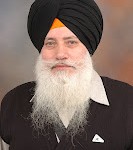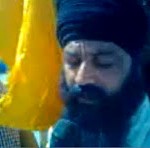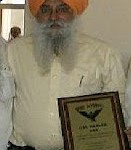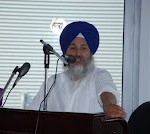Ludhiana (September 02, 2012): A Delhi
based Indian Court is reported to have issued “non-bailable” warrants
against five Sikhs who were involved in hijacking an Air India plane to
Pakistan in 1981. It is notable that only two of the five persons
currently reside in India.
According to reports the warrants
against five Dal Khalsa mean were issued on August 30, 2012 after
Additional Chief Metropolitan Magistrate (ACMM) Sameer Bajpai took
cognisance of Dehi Police charge-sheet filed in the case in 2011.
It is notable that a Pakistan court had
already held the trial in this case and the alleged accused have
undergone the punitive imprisonment awarded by the court in this case.
India want these Sikhs to face a fresh
trial for alleged other offences than those they had been earlier
convicted of and sentenced to. Indian court has fixed the matter for
further hearing on October 15.
“In my opinion, there is sufficient
material to proceed against the accused persons. I, therefore, take
cognisance of the offences under sections 121 (waging war against
Government of India), 121A (conspiring to commit certain offences
against the state), 124A (sedition) and 120B (criminal conspiracy) of
the Indian Penal Code (IPC),” the judge is reported to have said.
It is notable that September 29, 1981 an
Air India flight from New Delhi to Srinagar was hijacked and forced it
to land in Pakistan. Hijackers were arrested by Pakistan police and were
sentenced life terms by a court there.
Non-bailable warrants are now issued
against Bhai Gajinder Singh (living in exile), Bhai Satnam Singh Paonta
Sahib (Former President of Dal Khalsa), Bhai Karan Singh Srinagar, Bhai
Jasbir Singh Cheema and Bhai Tajinder Pal Singh.
Bhai Satnam Singh Paonta Sahib and
Tajinder Pal Singh are currently in India, while other three are
believed to be out of this country.
It is notable that Bhai Gajinder Singh, a resident of Chandigarh is the patron of ‘Dal Khalsa’, a political body.
It is notable that Bhai Gajinder Singh,
after serving his sentence in Pakistan, did not return to India. He
reportedly went to Germany in 1995 and was detained at an Airport there.
The government asked Germany to handover Gajinder Singh to India but
Germany did not oblige India as it said that Gajinder Singh, would be
deported to from where he had come. He is still abroad, but where,
nobody knows.
Two others Karan Singh a resident of
Srinagar in Jammu and Kashmir and Jasbir Singh Cheema, a resident of
Khanna in Punjab are said to be in Switzerland since 1995. Both have got
asylum in Switzerland, it has been learnt.
Satnam Singh Paonta Sahib is an
ex-president and a senior leader of Dal Khalsa. He belongs to Paonta
Sahib and after serving his sentence in Pakistan had gone to USA where
he had sought asylum. However, his request for asylum was denied and he
was deported back to India in the year 2000.
The fifth Sikh hijacker is Tajinder Pal
Singh, who after serving his sentence in Pakistan had gone to Canada and
filed a petition for asylum. He tried the same for 4 years but was
deported back in 1999 after the rejection of his petition for asylum.
It may be recalled that after Satnam
Singh Paonta Sahib got deported to India he approached a court here
seeking quashing of the case registered here in the case of hijacking
the plane. He pleaded that he could not be put on trial for the same
offence twice as per the principle of double jeopardy.
The police later approached another
court here with a charge sheet filed against the five under the charges
of waging war against the country, conspiracy and various other
offences.
The magistrate has now ordered that the
accused would have to face fresh trial here in the same case but for
different offences. He ruled that the principle of double jeopardy does
not apply as the offences for which they were tried and convicted in
Pakistan and for which the present charge sheet is filed are distinct
and separate.





